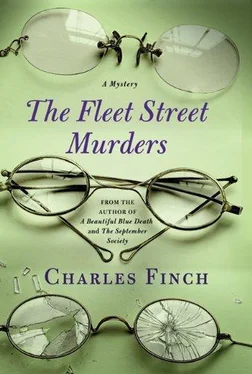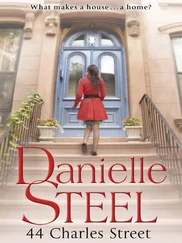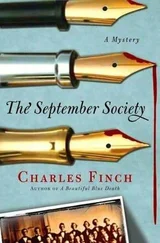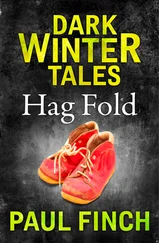Charles Finch - Fleet Street murders
Здесь есть возможность читать онлайн «Charles Finch - Fleet Street murders» весь текст электронной книги совершенно бесплатно (целиком полную версию без сокращений). В некоторых случаях можно слушать аудио, скачать через торрент в формате fb2 и присутствует краткое содержание. Жанр: Исторический детектив, на английском языке. Описание произведения, (предисловие) а так же отзывы посетителей доступны на портале библиотеки ЛибКат.
- Название:Fleet Street murders
- Автор:
- Жанр:
- Год:неизвестен
- ISBN:нет данных
- Рейтинг книги:5 / 5. Голосов: 1
-
Избранное:Добавить в избранное
- Отзывы:
-
Ваша оценка:
- 100
- 1
- 2
- 3
- 4
- 5
Fleet Street murders: краткое содержание, описание и аннотация
Предлагаем к чтению аннотацию, описание, краткое содержание или предисловие (зависит от того, что написал сам автор книги «Fleet Street murders»). Если вы не нашли необходимую информацию о книге — напишите в комментариях, мы постараемся отыскать её.
Fleet Street murders — читать онлайн бесплатно полную книгу (весь текст) целиком
Ниже представлен текст книги, разбитый по страницам. Система сохранения места последней прочитанной страницы, позволяет с удобством читать онлайн бесплатно книгу «Fleet Street murders», без необходимости каждый раз заново искать на чём Вы остановились. Поставьте закладку, и сможете в любой момент перейти на страницу, на которой закончили чтение.
Интервал:
Закладка:
“How can I get in?”
“There’s a constable there-constables everywhere, since Exeter died and this all became so famous.”
“You’ll send him word-”
“Yes, go over any time.”
“Are you officially at work on this case?” Lenox asked.
“Now, yes.”
“Who do you think killed Exeter?”
“Honestly? I think it was unrelated to all this. A fluke. His job made him enemies all over the East End.”
Lenox nodded. “Perhaps.”
“See you soon, Charles.”
Exeter was interred in a small cemetery not a mile from the church, and the procession made its increasingly ragged way back to Exeter’s house. It was a modest, handsomely kept two-story building, white with a thatched roof and blue shutters.
Inside it was warm and comfortable, and Lenox had a vision of Exeter after hours, sitting by his hearth with his family around him. By now they had sloughed off the Lord Mayor and the majority of his ilk, and it was Exeter’s cousins, his uncles, his subordinates at the Yard who ate ham and drank ale. Lenox found himself with nobody quite to talk to and soon wandered outside to the side of the house for a smoke.
It was here that he saw Exeter’s son, John.
They had met once before. After a case that Lenox had been instrumental in solving, Exeter had taken the credit for himself and received a commendation from Scotland Yard. Lenox, used to it, offered no objection but was surprised when Exeter had invited him to the ceremony. There, by way perhaps of apology or explanation, he had introduced the eight-year-old John Exeter to Lenox with a sort of rough pride. Lenox had understood the inspector better in that moment than ever before.
The lad was playing near a chicken coop, among the rows of a small, productive-looking garden. He had on a black suit that was dirtied at the knees because he had been kneeling between two tomato vines.
Suddenly Lenox felt the pain of it all: Exeter had been alive, and now he was dead. The industry and hominess and practicality of the little rows of vegetables seemed somehow to summarize it all, more than the gloomy, garish funeral ever could, and it touched him profoundly.
“Hello, John,” said Lenox.
“Hello, Mr. Lenox,” said the boy, his face serious and handsome.
“You remember me?”
“Of course. My fa talks about you all the time, sir.”
Lenox absorbed this uncertainly. “What have you got there?” he said.
John held out his dirty hand, which clutched a toy train. “It’s the best one I’ve got,” he said.
“Do you like trains, then?”
“Oh, yes.”
“I do, too.”
“I want to ride one.”
“Haven’t you?”
“Not yet, sir.”
“You will, someday soon. When is your birthday?”
“March eighth, Mr. Lenox.”
“Well, we’ll see,” said Lenox. “Perhaps someone will send you an even better train set on March eighth. I feel sure of it, in fact, John-just wait. Will you shake hands?”
The boy stood up and with grave concentration put his small, sweaty brown hand into Lenox’s. “Good-bye, Mr. Lenox.”
His pipe done, Lenox went inside to say good-bye to the widow. On the way home to Mayfair he looked out through the window of his carriage at the clear, cold day and felt the melancholy that veiled the city to his eyes.
Dallington was waiting for him in Hampden Lane.
“How are you?” Lenox asked.
“Bloody awful.”
“Gracious, what is it?”
“He really did it, by God. It was the worst twenty minutes of my life, listening to him. He had a reason, and he-he knew exactly how it had been done.”
“Forgive me, but-Poole?”
“Yes, Gerry Poole. He was a different creature today than he had ever been before. He talked about plunging a knife in a man’s back as if it were the most natural thing in the world.”
It was the most upset Lenox had ever seen the younger man, who was always so quick with a joke and a smile.
“Did he give you any details?”
“Not really.”
“Anything about Martha Claes?”
“Not a thing.”
The return of the Belgian maid (who had apparently been moving along the Norfolk coast, unsuccessfully trying to find a way out of the country) had offered very few details about the murder of Winston Carruthers. She was in police custody now, but according to Jenkins she had only said she had acted as Poole’s assistant, helping him gain access to Carruthers and standing by as he murdered him. She had returned seeking immunity to prosecution for providing evidence and refused to speak another word until she got it.
Dallington stayed for a few minutes longer, then left, still disconsolate. Lenox had felt that sort of anguish before, in his early days as an amateur detective.
Despite the confession, he had work to do still, he felt. Who had killed Inspector Exeter and Hiram Smalls? Not Gerald Poole, certainly; and if his proxies had done it, why and who were they? Almost at the same hour as Exeter was lying on his deathbed, Poole had been giving his confession. It made no sense.
So Lenox decided to persevere-and to begin with Winston Carruthers’s rooms, a few streets away.
It was dark by now and cold outside. He waited for his carriage on the curb, stamping his feet to stay warm. Eventually it came and he stepped in.
Just as he was going to close the door, a voice called from behind him, “You dropped a penny, sir.”
It was one of the footmen who had brought the horses around.
“Cheers,” said Lenox.
He took the penny in his hand-and as he sat down his mind started racing.
A penny.
What had he found under Hiram Smalls’s bed? A farthing, a halfpenny, a penny, threepence, sixpence, and a shilling, he had told the warden of Newgate. All the coins of the realm…
Smalls had been sending a message, Lenox realized with a thud in his chest, a message pointing to the man who made those coins-at the Mint.
Then Lenox remembered: He had a story about the Royal Mint, Moon had said of Carruthers. A story about the Mint-had he discovered something about the Mint? Corruption there? Was he trying to blackmail Barnard?
Just like that, Lenox remembered something funny-Barnard had called Carruthers “Win,” his common nickname, at Lady Nevin’s party but claimed he hadn’t known the man the press called Winston.
A last thought flitted into his mind about what Jane had said, George Barnard was to have a party, but he’s gone to Geneva instead.
It appeared that these murders led back, as half the crimes in London did, to one man: George Barnard. Who now had fled to Geneva.
CHAPTER THIRTY-SEVEN
It hung together in his head, the whole thing, but only tenuously-a number of disparate facts that couldn’t bear much weight, that only hinted at the truth, but that together seemed definite. For instance, as he worked it through in his mind he remembered that Smalls’s mother had mysteriously been relieved of a hundred-pound debt. Mightn’t Barnard have paid that? If he had, then Smalls would have only felt comfortable leaving a veiled clue (the coins) rather than an outright declaration.
Then there was Carruthers’s article about the Mint, of which Barnard had been head! He must find that. Could it be the motive-that Carruthers, a corrupt and corruptible soul, was trying to blackmail Barnard because he had discovered the man’s theft from the Mint?
“Poole is innocent,” muttered Lenox under his breath. Then in a louder voice he said, “Stop the carriage!”
He ran inside and took from a locked door in his desk the one-page file on Barnard he had compiled from his hundreds of pages of facts collecting and speculation and read it, searching for a clue to Winston Carruthers’s murder-and to Hiram Smalls’s murder.
Читать дальшеИнтервал:
Закладка:
Похожие книги на «Fleet Street murders»
Представляем Вашему вниманию похожие книги на «Fleet Street murders» списком для выбора. Мы отобрали схожую по названию и смыслу литературу в надежде предоставить читателям больше вариантов отыскать новые, интересные, ещё непрочитанные произведения.
Обсуждение, отзывы о книге «Fleet Street murders» и просто собственные мнения читателей. Оставьте ваши комментарии, напишите, что Вы думаете о произведении, его смысле или главных героях. Укажите что конкретно понравилось, а что нет, и почему Вы так считаете.












